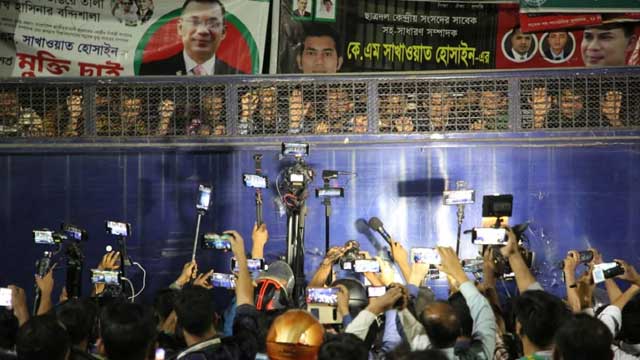The ruling Awami League (AL) has consolidated political power through sustained harassment of the opposition and those perceived to be allied with it, as well as of critical media and voices in civil society, according to a report by Freedom House, a US-based independent watchdog.
The report says, “Corruption is endemic, and anticorruption efforts have been weakened by politicized enforcement.”
“Due process guarantees are poorly upheld and security forces violate human rights with near impunity. Violence and discrimination against religious minorities and refugees, particularly Rohingya who have fled Myanmar, are significant problems.”
About harassment of opposition, the report said, “The BNP has been weakened by regular harassment and arrests of key members that have significantly harmed its ability to challenge the AL in elections; the BNP has also boycotted national and local elections in recent years.”
The 2018 election campaign, in which the BNP did take part, was marred by a crackdown that saw thousands of people and several political candidates arrested and many physically assaulted, it added.
BNP leader Khaleda Zia was imprisoned in 2018 and remains under de facto house arrest over corruption convictions, reads the report.
About freedom of expression in Bangladesh, the report says, “Journalists and media outlets face many forms of pressure, including frequent lawsuits, harassment, and serious or deadly physical attacks. Throughout 2022, journalists were arrested or physically assaulted for critical reporting on the government, which has escalated under the AL government.”
The report also says, “The 2018 Digital Security Act (DSA) allows the government to conduct searches or arrest individuals without a warrant, criminalizes various forms of online speech, and was vehemently opposed by journalists.”
About rule of law, the report says, “Politicization of and pressure against the judiciary persists. The Ministry of Law controls promotions, postings, and transfers of subordinate court judges. Judges face political pressure over their rulings and judicial appointments at all levels are highly politicized.”
“In 2017, Supreme Court chief justice Surendra Kumar Sinha retired and fled Bangladesh, saying he was threatened over rulings against the government. In late 2021, he was sentenced in absentia to 11 years’ imprisonment on corruption charges his supporters called politically motivated.”
MN/





